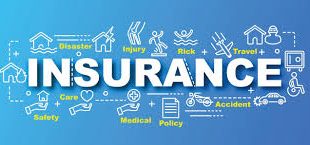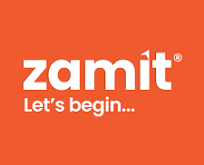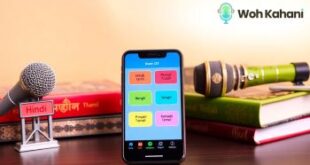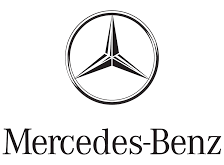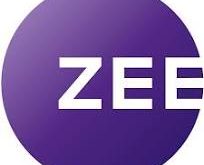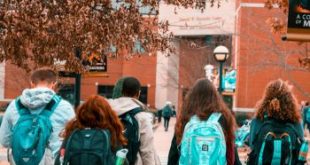World Health Day: Experts call for equitable access to healthcare for blood cancer and blood disorder patients
World Health Day: Experts call for equitable access to healthcare for blood cancer and blood disorder patients
BENGALURU, 5 April 2024: 25-year-old Puneeth suffered from thalassemia major, which is a genetic blood disorder characterised by abnormal hemoglobin production and low production of red blood cells, since he was only nine. Battling with thalassemia as a child came with multifaceted challenges in Puneeth’s day-to-day activities.
Since Puneeth was diagnosed with this disease in 2008, he has undergone blood transfusions at a charitable hospital on a regular basis. A stem cell transplant was the only curative treatment option for Puneeth’s condition. It was only in 2020 when a Hospital in Bangalore conducted a free HLA typing camp in association with DKMS-BMST at their centre, where Puneeth and his elder brother Prajwal gave their cheek swab sample for HLA (Human Leukocyte Antigen) typing. The result showed that Puneet found a perfect match with his brother.
However, owing to financial constraints, his family was hesitant towards the transplantation. This is where the DKMS BMST Patient Funding program stepped in to help Puneeth successfully undergo his transplant in September 2022 and receive a second chance at life. The transplant yielded success, and the family now looks forward to a positive future ahead.
Puneeth was fortunate enough to find a matching donor in his family, whereas over 70% of the patients diagnosed with blood cancer or blood disorder are unable to find a match and urgently need a matching unrelated donor. DKMS-BMST has a mission to give such patients a second chance at life by registering potential stem cell donors from across India.
Dr. Govind Eriat, Consultant Hematology, Hemato-Oncology, and Bone Marrow Transplant at BGS Gleneagles Global Hospital, Bengaluru, said, “Karnataka bears a considerable burden of blood cancer and blood disorder cases contributing substantially to the state’s healthcare burden and the national statistics of over 100,000 cases annually. Stem cell transplants offer a ray of hope for patients battling this disease, providing them with a second chance at life. However, accessibility to combat this disease often remains a challenge, especially for economically underprivileged people. Initiatives like DKMS-BMST Thalassemia and patient funding programs provide critical support to those unable to get access to transplantation and help them get a second chance at life.”
Patrick Paul, CEO of DKMS BMST Foundation India, said, “Aligned with the theme of World Health Day “My Health, My Right,” we believe that everyone, regardless of background or circumstance, deserves access to quality health services, information, and the resources needed to live a healthy life. Through the Patient funding and and Thalassemia programs, DKMS-BMST has been instrumental in democratising access to stem cell transplantations nationwide. To achieve this, we have created an effective and streamlined program structure so we can help as many patients in need as possible. By alleviating financial constraints and fostering collaborations within the healthcare sector, we strive to empower individuals like Puneeth with the opportunity for enhanced quality of life and renewed hope.”
While advancements in medical science have improved outcomes for blood cancer and blood disorder patients, a significant hurdle remains – the availability of Human Leukocyte Antigen (HLA)-matched stem cell donors. An HLA match is crucial for a successful stem cell transplant, and the likelihood of finding a match is highest among individuals of similar ethnicity.
The current pool of potential stem cell donors is insufficient to meet the needs of all blood cancer and blood disorder patients. This disparity disproportionately affects Indian patients, who have a lower chance of finding a match due to limited donor diversity. Unfortunately, only 0.03% of the Indian population have registered as potential donors. This increases the need for more people of Indian ethnicity to register themselves.
To register as a potential stem cell donor, you must be a healthy Indian adult between 18 and 55. When you are ready to register, all you need to do is complete a consent form and swab the inside of your cheeks to collect your tissue cells. Your tissue sample is then sent to the lab to be analyzed for your HLA (Human Leukocyte Antigen) and listed anonymously on the international search platform for matching stem cell donors. If you’re eligible, register as a blood stem cell donor by ordering your home swab kit at www.dkms-bmst.org/register
BENGALURU, 5 April 2024: 25-year-old Puneeth suffered from thalassemia major, which is a genetic blood disorder characterised by abnormal hemoglobin production and low production of red blood cells, since he was only nine. Battling with thalassemia as a child came with multifaceted challenges in Puneeth’s day-to-day activities.
Since Puneeth was diagnosed with this disease in 2008, he has undergone blood transfusions at a charitable hospital on a regular basis. A stem cell transplant was the only curative treatment option for Puneeth’s condition. It was only in 2020 when a Hospital in Bangalore conducted a free HLA typing camp in association with DKMS-BMST at their centre, where Puneeth and his elder brother Prajwal gave their cheek swab sample for HLA (Human Leukocyte Antigen) typing. The result showed that Puneet found a perfect match with his brother.
However, owing to financial constraints, his family was hesitant towards the transplantation. This is where the DKMS BMST Patient Funding program stepped in to help Puneeth successfully undergo his transplant in September 2022 and receive a second chance at life. The transplant yielded success, and the family now looks forward to a positive future ahead.
Puneeth was fortunate enough to find a matching donor in his family, whereas over 70% of the patients diagnosed with blood cancer or blood disorder are unable to find a match and urgently need a matching unrelated donor. DKMS-BMST has a mission to give such patients a second chance at life by registering potential stem cell donors from across India.
Dr. Govind Eriat, Consultant Hematology, Hemato-Oncology, and Bone Marrow Transplant at BGS Gleneagles Global Hospital, Bengaluru, said, “Karnataka bears a considerable burden of blood cancer and blood disorder cases contributing substantially to the state’s healthcare burden and the national statistics of over 100,000 cases annually. Stem cell transplants offer a ray of hope for patients battling this disease, providing them with a second chance at life. However, accessibility to combat this disease often remains a challenge, especially for economically underprivileged people. Initiatives like DKMS-BMST Thalassemia and patient funding programs provide critical support to those unable to get access to transplantation and help them get a second chance at life.”
Patrick Paul, CEO of DKMS BMST Foundation India, said, “Aligned with the theme of World Health Day “My Health, My Right,” we believe that everyone, regardless of background or circumstance, deserves access to quality health services, information, and the resources needed to live a healthy life. Through the Patient funding and and Thalassemia programs, DKMS-BMST has been instrumental in democratising access to stem cell transplantations nationwide. To achieve this, we have created an effective and streamlined program structure so we can help as many patients in need as possible. By alleviating financial constraints and fostering collaborations within the healthcare sector, we strive to empower individuals like Puneeth with the opportunity for enhanced quality of life and renewed hope.”
While advancements in medical science have improved outcomes for blood cancer and blood disorder patients, a significant hurdle remains – the availability of Human Leukocyte Antigen (HLA)-matched stem cell donors. An HLA match is crucial for a successful stem cell transplant, and the likelihood of finding a match is highest among individuals of similar ethnicity.
The current pool of potential stem cell donors is insufficient to meet the needs of all blood cancer and blood disorder patients. This disparity disproportionately affects Indian patients, who have a lower chance of finding a match due to limited donor diversity. Unfortunately, only 0.03% of the Indian population have registered as potential donors. This increases the need for more people of Indian ethnicity to register themselves.
To register as a potential stem cell donor, you must be a healthy Indian adult between 18 and 55. When you are ready to register, all you need to do is complete a consent form and swab the inside of your cheeks to collect your tissue cells. Your tissue sample is then sent to the lab to be analyzed for your HLA (Human Leukocyte Antigen) and listed anonymously on the international search platform for matching stem cell donors. If you’re eligible, register as a blood stem cell donor by ordering your home swab kit at www.dkms-bmst.org/register
 Newspatrolling.com News cum Content Syndication Portal Online
Newspatrolling.com News cum Content Syndication Portal Online

